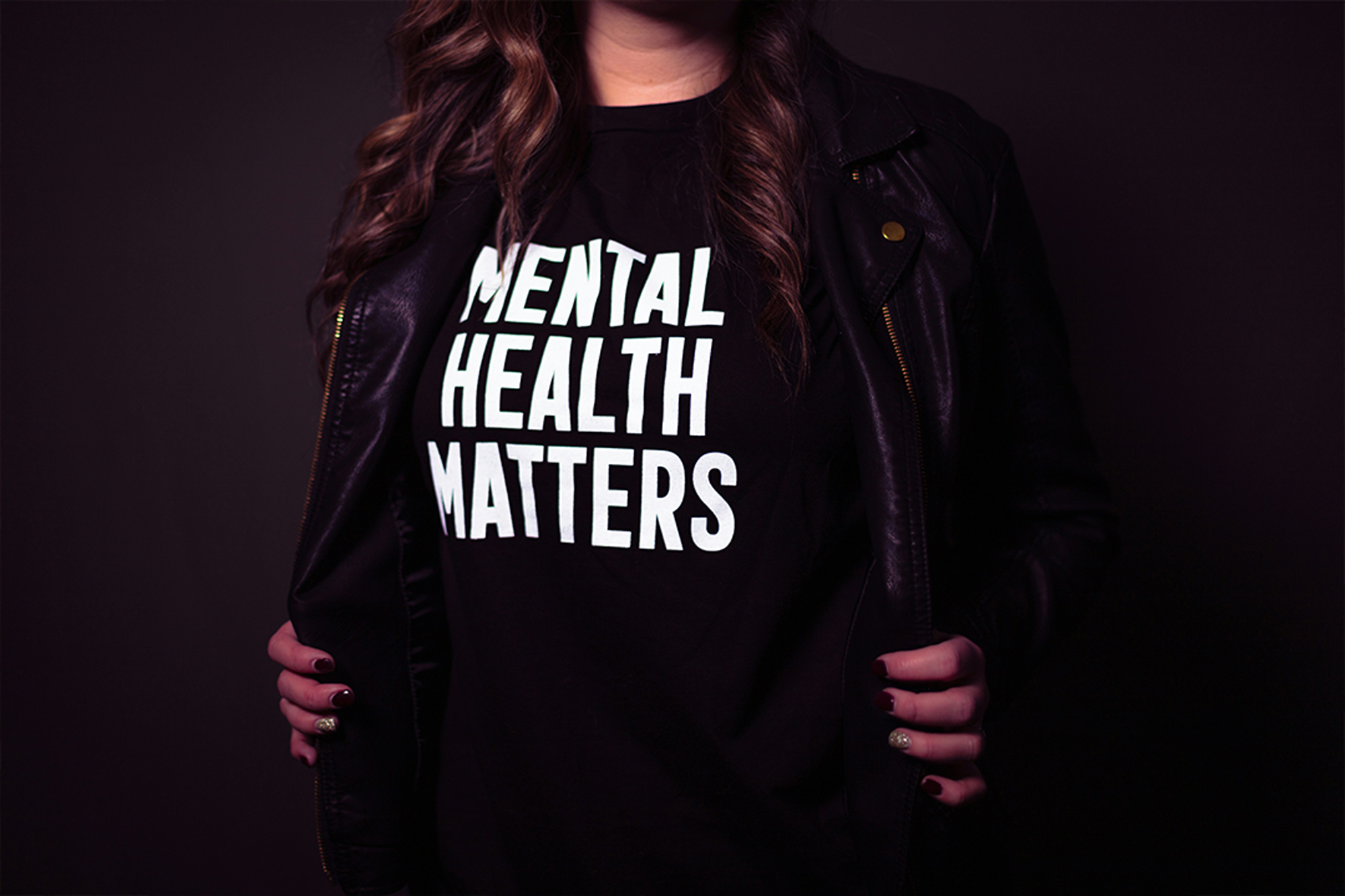Each May, we recognize Mental Health Awareness Month—an important time to recognize the need for real talk about emotional well-being, behavioral health, and the essential need for support in our lives and communities. Since its founding in 1949, this May observance has worked to educate the public, reduce stigma, and promote access to mental health resources. Wolcott Counseling & Wellness believes this month offers a powerful opportunity to both raise awareness and take action, to care for ourselves and advocate for others.
Why Mental Health Awareness Month Matters
Mental health is fundamental to our well-being. It affects how we think, feel, and act, shapes our relationships, our decision-making, and our ability to handle life’s stressors. According to the National Institute of Mental Health (NIMH), nearly 1 in 5 adults in the U.S. lives with a mental illness. These conditions include anxiety, depression, bipolar disorder, and more, and impact people of all backgrounds.
Unfortunately, stigma and misunderstanding prevent many from seeking help. Mental Health Awareness Month aims to change that. Through education, open dialogue, and community engagement, we can create a more compassionate culture—one where mental health is prioritized and support is accessible.
How To Take Care of Your Own Mental Health
Just as we care for our physical health through exercise and nutrition, we must also take intentional steps to support our mental and emotional well-being. Here are several ways to nurture your mental health every day:
1. Prioritize Self-Care
Self-care isn’t candles and bubble baths. It’s about boundaries, positive self-regard, and making time for yourself. Self-care can include rest, hobbies, and activities that bring you joy. Whether it’s taking a walk, reading a book, gardening, meditating, or simply having some off time in your schedule, regular self-care reduces stress and boosts resilience.
2. Foster Meaningful Connections
Social support is essential in mental health. Regularly connecting with friends, family, or community members can reduce feelings of isolation and provide emotional encouragement. Make time to check in with loved ones—and resolve to reach out when you need support, too. If this is hard (and it is for many people), work on asking for help either with a therapist, in a process group, or via your own reading!
3. Practice Mindfulness
Mindfulness and grounding techniques can help manage anxiety and promote emotional balance. Simple practices like deep breathing, progressive muscle relaxation, journaling, or mindful meditation enhance your ability to stay present, calm, and engaged in your daily life.
4. Maintain Healthy Habits
Physical and mental health are deeply interconnected. A well-balanced diet, consistent sleep schedule, and regular physical activity can improve mood and reduce symptoms of depression and anxiety. Learn about sleep, hygiene, and prioritize your sleep. Don’t wear burnout as a badge of honor. Strive for a good balance of work, play, rest, and socialization. Read about and commit to healthy nutrition – again, ask for help with this when you need support.
5. Know When to Seek Help
Although many people still feel shame in asking for help, or believe therapy is self-indulgent or selfish, really strive to reframe this for yourself. I often say that equating needing therapy with being “crazy” is akin to equating getting a PhD with ignorance. In therapy, you’re getting an advanced degree in self-knowledge. Professional counseling is an investment in your self-awareness, your health, and your happiness. When you feel better, you’re more available for the rest of your life. If you’re experiencing persistent sadness, hopelessness, irritability, or difficulty functioning, professional support will make a difference. Speaking with a therapist or counselor provides a safe space to explore your thoughts and develop tools for healing and growth. At Wolcott Counseling & Wellness, we are here to help you discover yourself and grow into your highest potential!
Advocate for Others
Mental Health Awareness Month is also a time to be a voice for those who feel unseen or unheard. By becoming an advocate, you can help create a more inclusive, supportive, and healthy community.
1. Start the Conversation
Talk openly about mental health. This normalizes the existence of mental health as a concept and a measurement. Whether at home, work, or school, create safe spaces for open discussions to encourage others to share their experiences. A simple “How are you feeling lately?” is a good start – and sharing how you’re really feeling (instead of the ubiquitous “Fine” can completely change the conversation from superficial to authentic.
2. Listen Without Judgment
Active listening is one of the most meaningful ways to support someone. Let them speak freely without trying to fix or minimize their feelings. Offer empathy, not solutions. Let them know they’re not alone. Presence is vastly underrated – and it makes all the difference. Active listening is a skill that can be learned, and therapy, in particular group therapy, couples’ therapy, and family therapy, is a place where you can practice and develop this important skill.
3. Educate Yourself & Others
Understanding mental health conditions reduces fear and misunderstanding. Learn about symptoms, treatments, and support strategies. Then, share that knowledge through conversations, social media, or advocacy events. To learn more, you can visit Mental Health America at www.mhanational.org and view their talking points, resources, and educational materials.
4. Use Respectful Language
The words we use shape the culture around mental health. Avoid derogatory terms or making light of someone’s struggles. Instead, use person-first language (e.g., “a person living with bipolar disorder”) and speak with compassion.
5. Support Mental Health Organizations
Donate to or volunteer with nonprofits that focus on mental health to make a bigger impact. Many organizations offer education, outreach, and services for individuals and families affected by mental health challenges. One such organization is www.nami.org.
6. Be a Role Model
Take care of your own mental health and be open about your journey. When others see you prioritize your well-being and witness you speaking up and advocating for mental health awareness, they may feel more empowered to do the same. Courage is contagious. When you model self-awareness and vulnerability, it helps reduce stigma for everyone.
7. Advocate for Change
Use your voice to push for mental health policy improvements, like expanded access to care, crisis services, or school-based counseling programs. Support local and national efforts through social media, petitions, and community action. Campaigns like #Vote4MentalHealth help bring these issues to the forefront.
8. Check In Regularly
Mental health support isn’t a once-a-year event. It’s ongoing. If someone in your life is going through a tough time or in recovery, make the effort to follow up. Regular check-ins make others feel truly cared for and supported throughout their journey.
You Are Not Alone
Mental Health Awareness Month reminds us that mental health matters—and that you are not alone. At Wolcott Counseling & Wellness, we are here to support your journey toward healing, balance, and wholeness. Whether you’re looking to strengthen your own mental wellness or advocate for others, your efforts matter! Each act of kindness, conversation, and connection brings us closer to a world where everyone feels safe, understood, and empowered to seek the help they need.
Let’s use this month to open the floor to dialogue, to education, to change. Together, we can build a community that prioritizes mental wellness not just in May, but all year long.
If you or a loved one is ready to take the first step toward support, our team is here to help. Reach out to Wolcott Counseling & Wellness to learn more about our services and how we can walk alongside you on your path to mental well-being. You can request an appointment at www.wolcottcounseling.com/contact/. We look forward to working with you!


